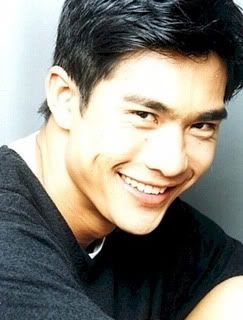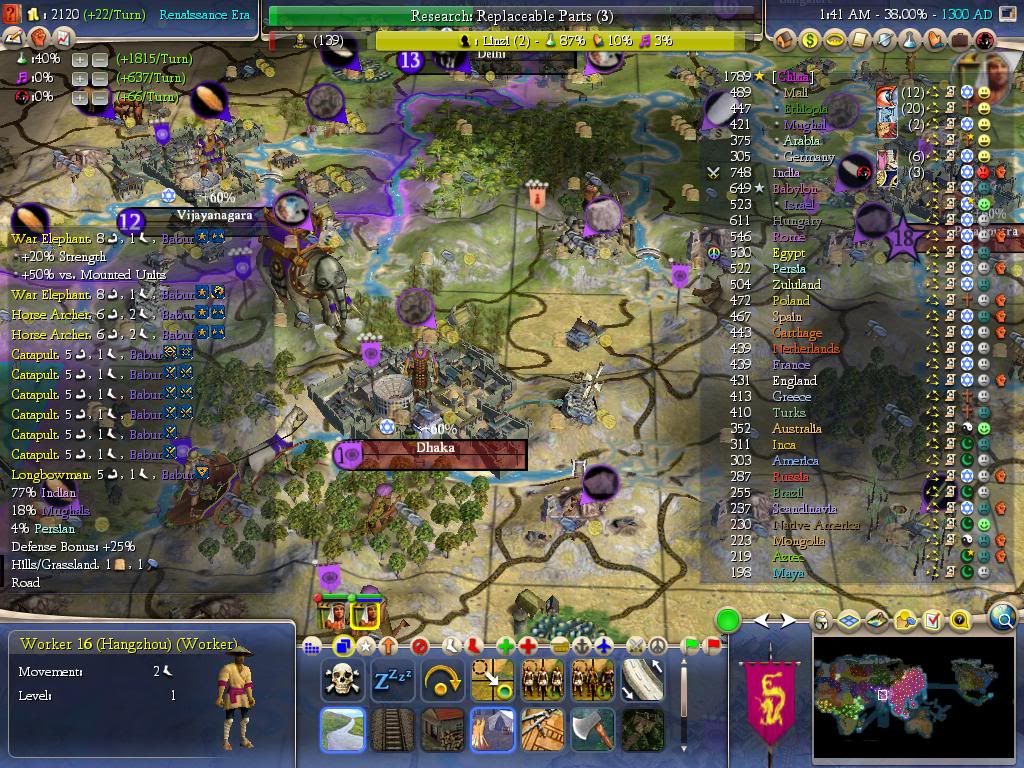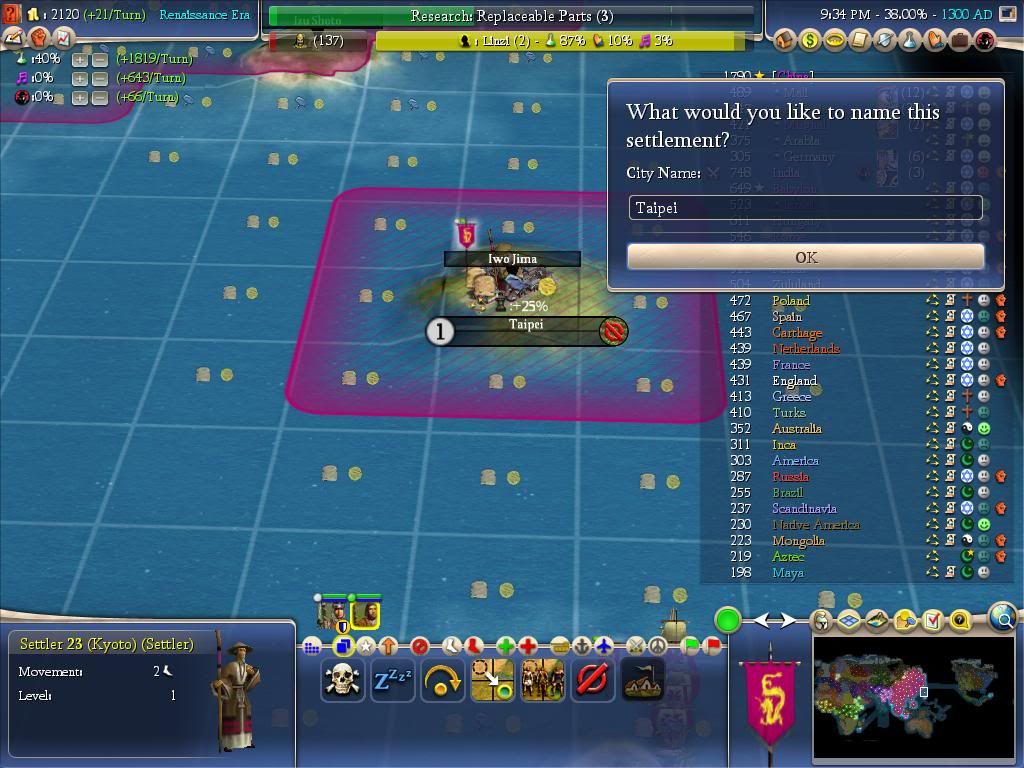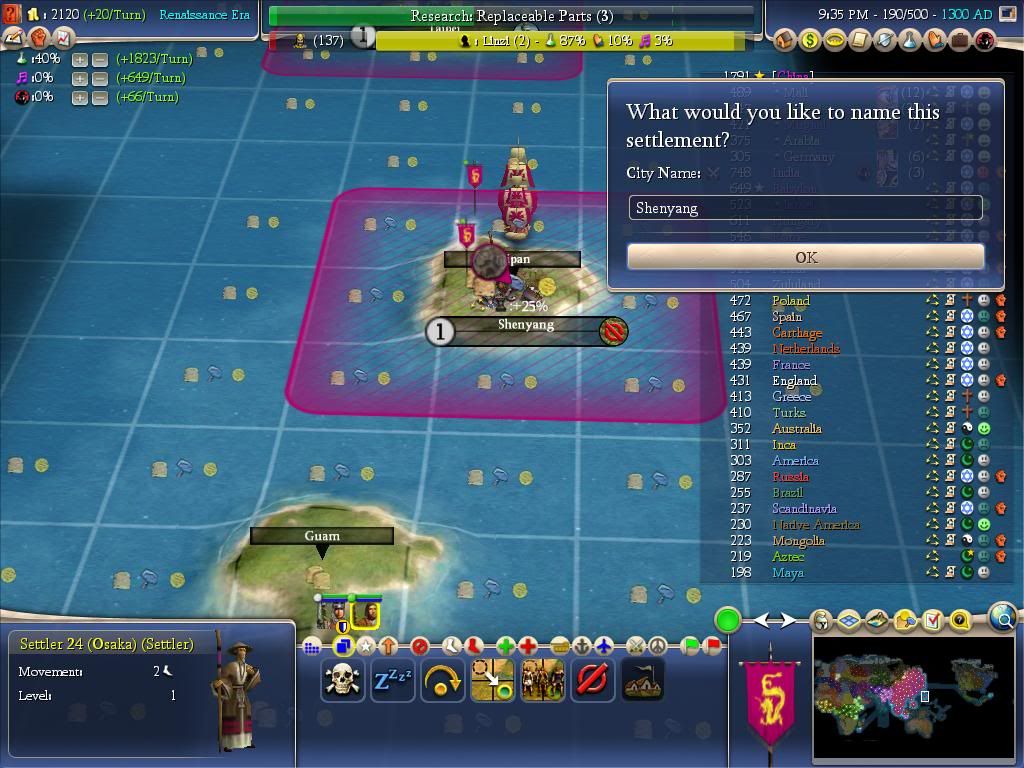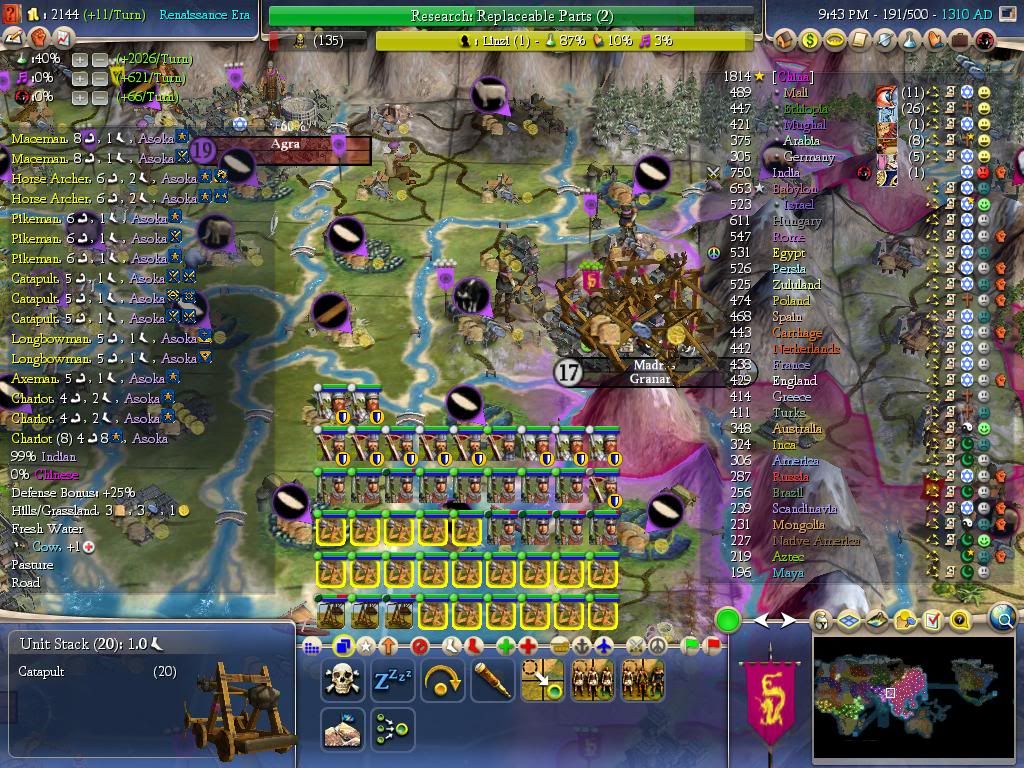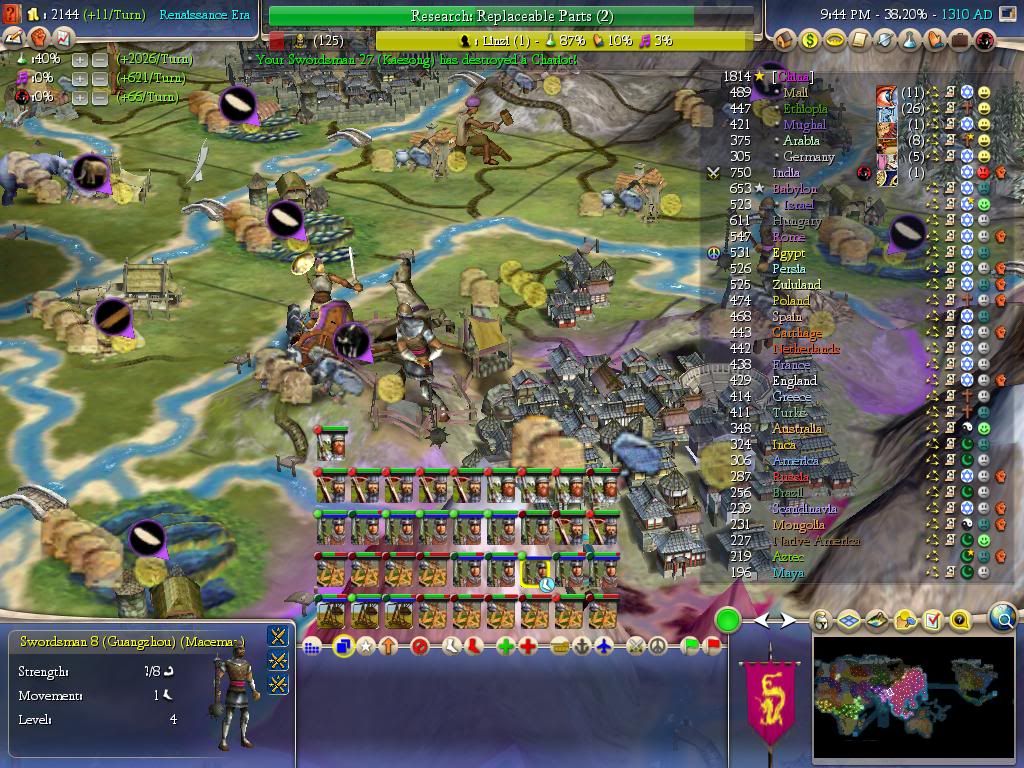@Tycho: Apart from the Peranakan Chinese (which are a real live ethnic group), there will be two more updates in the future about the Feizhou Hapas (mixed-race Blasians) and the Aozhou Hapas (mixed-race Eurasians). Hapa is a real term but I added the Chinese terms for Africa & Europe respectively as a prefix to differentiate.
@Mosher: Leah Dizon was married to her Japanese stylist, Bun and had a daughter through him but they're divorced now.
@Zizon: I always become very pleased when I acquire new readers! Hope you're enjoying the story.
A large contingent of Pashtun cavalry loyal to the Xia Empress strike out
towards Dhaka, threatening the Western Front of the Vajra Republic.
The dust storms were still raging as I looked out the window of the office I was standing in. One couldn't even see the stars under these conditions; there was just too much dust being kicked up. Most of the peasants and the city-folk had to stay in their homes during the intervals when the sandstorms picked up. They mostly huddled around the granaries in the calm hours, waiting for government workers to dole out rations to the crowd. More than the war itself, more people were angry with the government for a perceived apathy for their hunger. A stoic sort of anger boiled quietly in the underbelly of the Vajra public. Contact between the major cities in the Republic was also limited at best, thanks to that ungodly dust storm. But those of us on the subcontinent had to be thankful for them as well; the Chinese were a cautious lot, refusing to move out into open ground during the sandstorms for fear of ambush. It was almost as if every city had become an island unto itself, severed apart by a vast sea of sand. It had been a day after the nightmarish encounter with the serpentspawn woman. Zealot caretakers immediately took my mentor into custody and tended to him as he slept through the morning and the day. I was told before the sun went up that as soon as the night fell, he would have more capable Elohist attendants available to care for him.
"Apologies, young one," a man's voice called out as he entered the richly furnished room.
The man was an Elder but I wouldn't have known it just by looking at him. He looked quite young.
He couldn't actually have been much older than myself in appearance but I knew in reality,
he had probably lived at least ten times longer than my pitiful time on Earth.
Such is the static condition of an immortal.
"So you're the progeny of the great Rabbi Singh. I'm quite honored to meet you,"
"The honor is all mine, Elder Chandra," I responded with a curtsy.
He poured me a fresh cup of blood, doubtless procured from one of the numerous Zealot fanatics that presided this fortress;
ever-willing to give up their minds, bodies & souls to slake our angelic thirsts.
"I heard about what happened to Rabbi Singh. He is a respected member of the angelic community and rest assured, he will be safe in our hands.
You were very lucky as well. Few of our kind survive any encounters with the children of Lucifer at all," the Elder praised.
"It was thanks to his quick thinking, sir," I said. "One of our Zealots survived the initial massacre and when she witnessed the serpentspawn using her dark magicks...something happened and forced her to retreat. I would never have dragged her out if my mentor hadn't instructed me to,"
"I see," the Elder mumbled to himself. "It's not entirely common knowledge yet, but in recent years, we've discovered that the serpentspawn are repelled from using their eldritch powers when a mortal can witness it in plain sight. The exact machinations of this curious relationship still elude us, but it was quite effective, as you can see. It's also the reason why you've seen so many Zealots here in our capital fortress; aside from being our licks, that is,"
"I also wanted you to pass on a message from the Elder Council to him when he wakes, Rajat. The man is a strict observer of our societies' protocols; our numbers must remain few and our actions discrete, so Rabbi Singh is to be commended for that. But here in Vajra, men and women are plentiful and we have significantly easier standards for siring progeny. And I'm told that in recent weeks, serpentspawn assassins have cut a swathe through our numbers; leaving us with a shortage of manpower. Rabbi Singh, to my understanding, only sired you when he should have taken a few more. That's fine. He hasn't violated anything but I need you to let him know that as soon as he's capable again; he needs to fulfill his responsibility as an Elohim Elder and sire a few more progeny when his strength returns," He removed an ink feather from his table and took a piece of blank parchment to begin writing. After a few seconds, he handed the slip to me and spoke up. "Before you do anything else tonight, go pay the apothecary a visit and show them this paper. This is for a medicinal salve that should hasten your mentor's recovery,"
"Very well, sir," I said as I put down my cup and took the slip. The blood was rich and my palette was becoming refined to the point where I could discern what kind of person the blood belonged to without looking. Young woman, early twenties, slender build, beautiful. Commendable taste. "I'll let him know," "Enjoy your stay here in the capital, Rajat," Elder Chandra said as I was escorted out of the room by Zealot bodyguards.
Despite waging two wars, the Imperial Chinese still found the time to colonize the numerous unpopulated islands that dotted the Tai Ping Yang.
"I haven't seen you around here before," the man behind the counter said.
"I don't doubt that. I'm here to pick up this order," I said, as I showed him my papers.
"Neonate, huh?" he asked as he leaned over the counter.
"You can tell?" I asked as he took the papers and searched his cubbies for various herbs & roots.
"We give off the same scent, brother. The scent of the fresh ones," he said as he licked his lips.
"Hmph," I paid him no mind as my eyes wandered to the vials and scales that sat atop the counter.
"How long? You devout?" he asked as he continued searching through the shelf behind him for the ingredients on the list.
"Not particularly. I read the passages from time to time and keep up in my lessons. That's all," I said.
"I'll be honest here. I'm only here to live forever, but it hasn't exactly lived up to my expectations so far," the alchemist said wistfully.
At this point, he began grounding all the ingredients together with his mortar and pestle.
The stench that erupted from the mixture was highly offensive but he didn't seem to mind.
"Listen, I'm only here to pick up the salve," I said, bemused.
"Have you tried sleeping with anyone since you turned?" he snickered.
The last time I slept with a woman was when I bedded Bhagat Nadar's cousin before I burned down their estate.
I hadn't tried since, although I glanced at Nagina from time to time;
partly because she was fairly comely and partly because I held so much power over her.
"I have. It's so inconsequential now, just like cannabis or fermented drink. You'd think that eternal life as a fallen angel would come with at least some incentive, and don't cite that 'Holy War' or the 'duty' bull the elders like to spew out. There's little pleasure in eternal life, or eternal un-life it would seem," he leaned in and added an additional bit of information. "Hearsay is though, that someone out West amongst the Japheth discovered a way to enjoy human comforts in small intervals,"
"You don't say," I said flatly.
"Here. It's done," he said as he bottled the liquid and capped it with an air-tight cork.
"My name is Sukrit Jindal by the way," the alchemist said.
There was a slight pause where we both studied each other and gauged the mood of the room.
"Well? What's yours?" he smirked.
"My name is Rajat Pritha. I have travelled here with my mentor, Rabbi Singh from the city of Madras,"
"Madras. That's the eastern-most city in our humble little Republic, isn't it?"
"Was our eastern-most city. Madras is in Chinese hands now,"
"Well, I'm sorry to hear that, Rajat," he said.
"Don't be. I didn't particularly like that city anyway," I changed the subject of the conversation.
"Why are we all convening here in Pataliputra anyway?
I doubt that it's just because of that solid block of light that's inching closer and closer,"
"Wall of light? It has a name you know. We call it the Solar Arcology. As for the recall..."
He slumped on one elbow as he looked me in the eyes. The salve was finished and waited for me on the table.
"Apparently, the elders are trying to move something out of the Vajra Republic.
They'll probably move it to Hevron in Judeo-Babylon.
It's supposed to arrive in three to five days or so if my sources are right,"
"Thank you, it's been interesting," I said, as I took the mixture.
"Instructions are on the side of the bottle," he said. I turned to leave.
"Hang on. Take this," he said as he stopped me and handed me a slip of paper.
"What's this?" I said as I read the address number off of it.
"You are Rajat Pritha, right? Word is around the sect that you've already managed to piss off some Elohim from the Aryan Empire,"
"Aryan? I pissed off one but I don't recall crossing a whole pack of them. I only choked him," He raised his eyebrows.
"Unintentionally, I assure you. But is he really so petty?" I added in my defense.
"Whoo. That isn't good. So the rumors were true. That 'Aryan fellow' you pissed off is Farhad Tehrani. He's got a notorious temper and a ton of clout despite being a neonate. If you had been lucky enough to arrive sooner, you wouldn't have had to learn it the hard way. What did you expect? First impressions are practically everything," his fangs glinted as he spoke. "Look, I can tell you're in need of a friend. And believe me, we might all be fighting for God, but that still isn't enough to make all of us buddy-buddy. Before you know it, someone will slip in a word with an Elder and before long, you're on a suicide mission up against some serpentspawn just because someone in the know doesn't like you. My coterie can help you out. Come visit us when you've got some time away from your mentor,"
"I can only assume that there's something in it for you," I responded with a hint of caution in my voice.
"You could say that. We're friends until it becomes inconvenient to remain so.
Isn't that how all relationships work though? They revolve around the fundamental basis of personal gain.
It's just more apparent to us than it is to those humans,"
"You don't think we're human?" I asked.
"You think we are?" he responded.
Shenyang was settled not long after Taipei had been founded.
Their proximity from the Empire proper enabled the development of
a co-dependent trade system between the two island cities.



